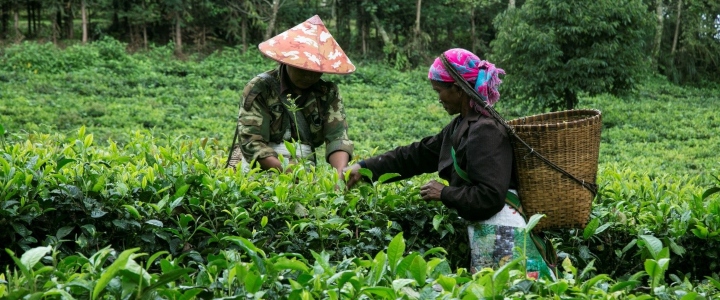
Rural sustainability research
Dr Bin Wu is a Senior Research Fellow at the Haydn Green Institute for Innovation and Entrepreneurship, Nottingham University Business School, specialising in research focusing on rural sustainability and grassroots innovation in China.
Building an ecosystem for social innovation in rural China
Poverty Traps
For the UN's Sustainable Development Goals (SDGs) to succeed, it is a vital to break “poverty traps” surrounding small farmers who feed two thirds of population in the developing world. These farmers are vulnerable due to many constraints such as the small scale of their operation, lacking access to key resources (e.g. credit, information, technologies, markets), and having no voice or bargaining power in markets.
To empower small farmers requires the participation of global universities like University of Nottingham to understand the complexity and multiple dimensions of these “poverty traps”, and facilitate local innovation and diffusion world-wide.
Dilemma
A dilemma facing academia is understanding the needs of local people, intrinsic dynamic within communities, and interfaces with external resources/opportunities.
In this regard, social innovation is a key to bring together small farmers for effective and sustainable solutions, which is largely dependent upon an ecosystem comprised by multiple stakeholders including academia.
The necessity for researching and establishing an ecosystem for social innovation and rural sustainability can be illustrated from a GCRF (Global Challenge Research Fund) pilot project in rural China, involving nearly half of the whole world’s small farmers.
As two institutional collaborative agreements (MoUs) have been signed with Sichuan provincial government (2017) and Sichuan Agricultural University (2018) respectively, the theme of this project is located in the poor areas of Sichuan.
Project aims
With the aim of supporting cooperatives to empower small farmers, the project aims to:
- understand cooperative ecosystems and the impacts on sustainable livelihoods of small farmers
- create a platform for multiple stakeholders (government agencies, research institutes, agribusiness companies, social enterprises, farmers’ cooperatives) for improving the ecosystem
- promote UK-China research collaboration and capacity building in rural innovation and entrepreneurship
Conclusions
Despite the interruption of the Covid-19 pandemic, this project was successfully completed with evidence as follows:
- a confirmation of social innovation as the most important element behind successful external intervention and bottom-up development in the poor areas of Sichuan. Equally important is an application of an ecosystem approach for research design and delivery to address challenge issues facing rural communities, leading to a pipeline of academic publications (see the project report)
- a UoN-China partnership with top Chinese research institutes (Chinese Academy of Social Sciences, Chinese Academy of Agricultural Sciences, China Agricultural University) and leading NGOs for research collaboration in rural sustainability
- five reports for the pathways of enlarging social impact in different sectors (potato, honey, rural tourism, organic agriculture, ecological and cultural protection)
- development of sustainability competencies among over a hundred of participator students from two universities (see student survey report)
- an international conference online for the dissemination of research findings and action plan with multiple stakeholders for the UK-China cooperation in SDGs, climate change, farmers’ empowerment, business and trade opportunities (see event report)
Not limited to rural China, this project shines new light on understanding and establishing ecosystems to foster social innovation for poverty alleviation and rural sustainability in the developing world, to which social management scientists can play an important role.



